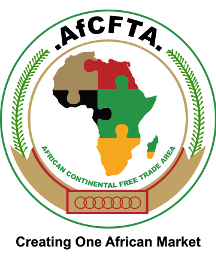It is undoubtedly true that, international trade plays an essential role in creating market for domestic products, boosting economies, reducing poverty, and broadening economic inclusion. It was on these basis that the African Union (AU) founded the African Continental Free Trade Area (AfCFTA) in 2018 in order to promote free trade among 54 member states. But should the use of a single currency be a priority in this drive to enhancing trade on the continent?
Specifically, the AfCFTA was created to deepen economic integration of the African continent, liberalised market through multiple rounds of negotiations, aid the movement of capital and people, facilitating investment, a step to creating a single market and a future continental customs union, achieve sustainable and inclusive socio-economic development, gender equality and structural transformations within member states, enhance competitiveness of member states within Africa and in the global market, encourage industrial development through diversification and regional value chain development, agricultural development and food security.

The World Bank report, The African Continental Free Trade Area: Economic and Distributional Effects, for instance, lauded the initiative and deemed it a great vehicle that will create a continent-wide market that will cut-down all trade costs, boost growth, and reduce poverty. Nonetheless, governments need to design policies to increase the readiness of their workforces to take advantage of new opportunities.
However, the exchange rate is another phenomenon that is very central in international trade as the strength of the currency of member countries varies, likewise the demand for the goods and services produced in each country. A single currency provides the leverage for all member countries and a strength to negotiate on the international table. This is simply because, the strength of the common currency will be bolstered by the economic might of all 54 member states, experts observed.
Again, considering the countries heterogeneity in terms of size, market, exports, population, economic structure, currency, central bank’s primary objective etc., free trade amongst member states without a common currency may result in the exact opposite of what AfCFTA is created for. That is, there will be unfair advantage for big economies whose exports are in high demand over smaller ones, inequality may worsen, poverty will be widespread, and the quest to achieving regional integration may not come to fruition.
Additionally, the use of a single currency eliminates the cost of converting currencies, increase price transparency, increase inward investment – that is investment on the continent, and eliminates exchange rate uncertainty. Indeed, the usefulness of a common currency under AfCFTA cannot be overemphasized. The African Union (AU) looked forward to attaining that in the near future, but how soon would this be achieved, taking cue from the Eco which has taking over 15years and yet to materialised?
Conversely, there are other proponents who do you buy into the single currency agenda. They argued that a single currency requires a single monetary policy which will not necessarily be in favour for all countries. For instance, if some countries are suffering from a downturn in economic activity, but the vast majority are booming, the central bank for the continent may increase interest rates which would simply worsen the plight of countries wallowing in recession.
Furthermore, countries respond differently to external shocks hence a single currency which will require a single monetary authority for the entire continent may not be favourable for all countries. For example, a sudden rise in oil prices in the international market will be a plus to countries who are net exporters of oil and vice versa. Therefore, using a single monetary policy may not address the key issues for all countries in times of external shocks.
Taking into consideration the pros and cons, the key question that is worth answering is, should the single currency agenda be pursued by AfCFTA or not? A thorough assessment of both the merits and demerits of having a single currency will go a long way in determining which stand to take.
Read Also: Five additional countries to ratify the AfCFTA agreement























